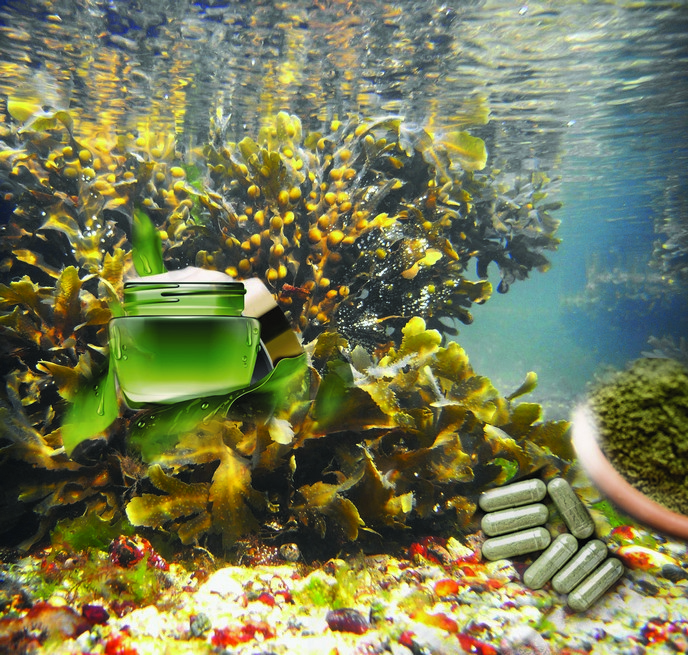Discovering algae’s power as a renewable resource
An almost endless number of products may be produced from algae, thanks to the vast number of species, whose composition can be influenced by changing the cultivation conditions. They range from minute unicellular organisms that may be seen only through a microscope (microalgae) to multicellular forms (macroalgae), more commonly known as seaweed. The successful exploitation of algae can help solve unsustainable processes, thereby boosting the bioeconomy and aiding the transition to a more sustainable society and a cleaner, healthier environment. Furthermore, their use in a variety of commercial applications helps to reduce pressures on land-based products or non-renewable resources.
The importance of algae
Algal communities are important components of marine ecosystems and several macroalgae species are used as food or as a habitat by organisms such as fish or invertebrates. Algae also provide bioremediation services through the uptake of dissolved nutrients from the water that, if not removed, could cause eutrophication. Because they are photosynthetic organisms, algae can contribute to carbon sequestration, thereby helping to reduce ocean acidification. The European Union’s latest Bioeconomy and Blue Growth strategies show that algal biomass is becoming increasingly significant as a resource for a variety of commercial applications. According to the European Commission's 2018 Annual Economic Report on the EU’s Blue Economy, the EU algae biomass sector currently employs 14 000 people and has a value of EUR 1.69 billion, which includes research and development, equipment production and jobs in the larger supply chain that depend on output from the algae sector. Increased production of macroalgae and microalgae is gaining widespread recognition in Europe as an important resource that can be used as a raw material for a wide range of uses. A growing number of companies are now involved in harvesting, cultivating, or processing algae to create a wide range of high-value products, including food, animal feed, nutraceuticals, fertiliser and bio-based products, thereby contributing to the success of the European Blue Economy.
Spotlight on innovation
This CORDIS Results Pack highlights nine projects funded under the EU’s Horizon 2020 Research and Innovation programme, investigating industrial processes and applications involving microalgae and seaweed. These include food, cosmetics, recycling, health and water quality. The pack also raises awareness of the importance of this growing economic sector among consumers. The relationship between algae and the microbial community (the algal microbiome) plays a key role in controlling algal populations in nature. The ALFF project investigated the algal microbiome to better understand how to enhance their production. Brevel developed a novel solar-based photobioreactor for sustainable chemical production from microalgae, while INTERCOME optimised photosynthesis to boost production of valuable products from algal biomass. SALTGAE meanwhile studied the technical and economic feasibility of using algae to treat waste water. SilhouetteOfSeaweed provided key reference data for the risk assessment of algae used for human consumption. SMILE developed a ready-for-market and highly effective microalgae-based ingredient for food supplement and neutraceutical applications. TARASOL created an innovative and purely organic sunscreen formulation that exploits the antioxidant properties of seaweed. VegaAlga used microalgae-based fertiliser to establish a sustainable agricultural ecosystem. Finally, VOPSA2.0 developed a sustainable production process for OMEGA-3 fatty acids from microalgae.



